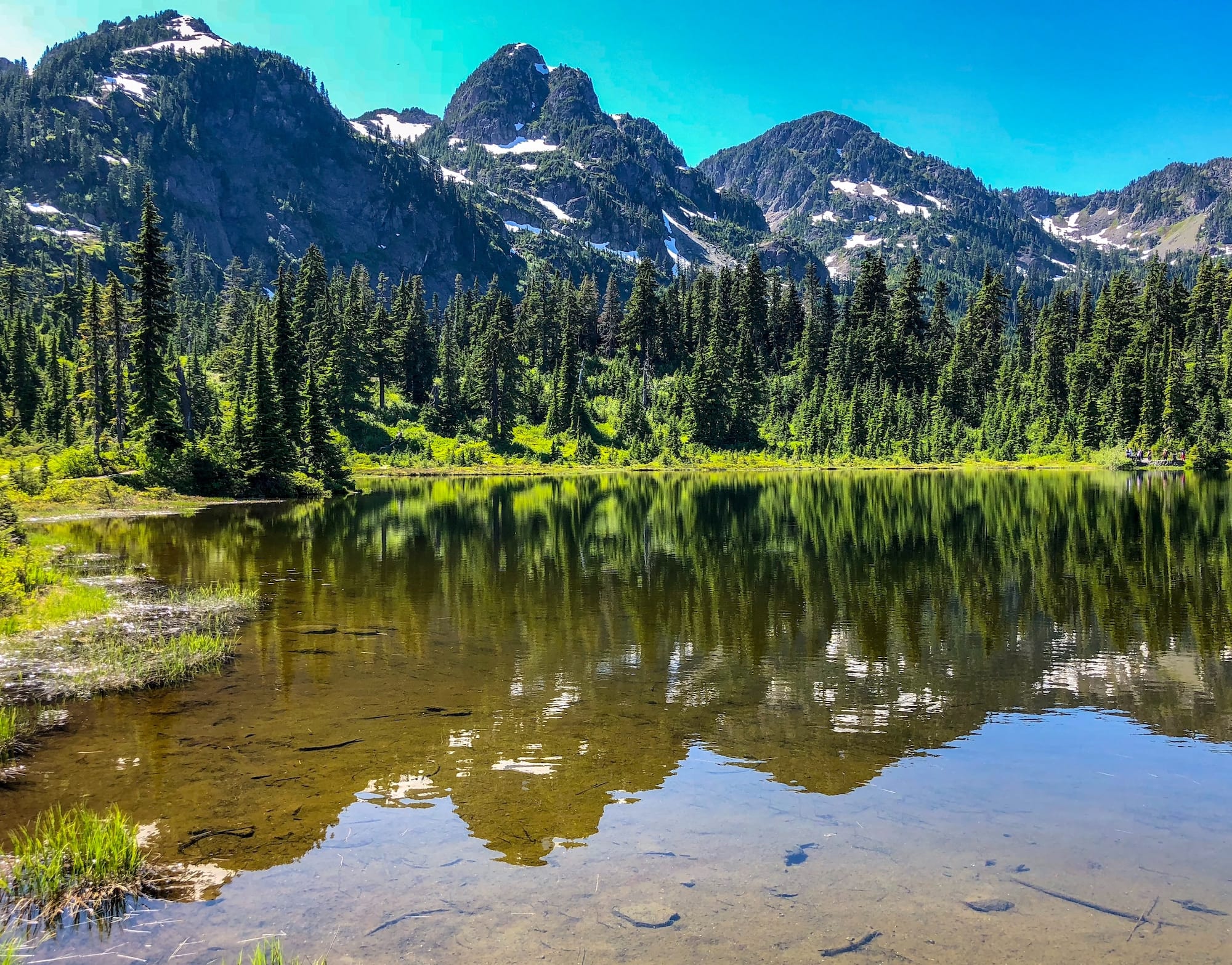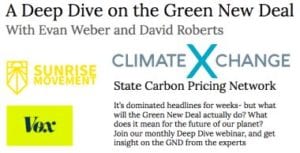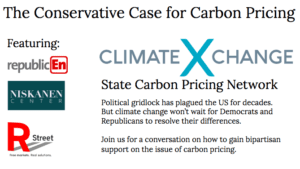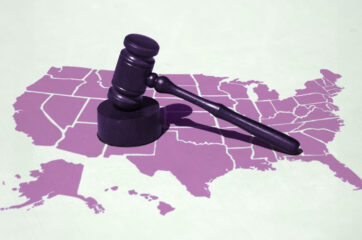Each month, the State Carbon Pricing Network (SCPN) holds a deep dive webinar, tackling a hot button carbon pricing issue with experts on the matter. This month, the SCPN organized a debrief on the Washington State November carbon pricing ballot initiative, I-1631. Three campaign insiders joined us for the session, which was moderated by Climate XChange’s Executive Director, Michael Green.
What was I-1631?
In November 2018, voters in Washington State rejected a ballot initiative that aimed to put a fee on carbon pollution. The initiative, entitled I-1631, aimed to impose a $15 per carbon ton price, that would rise by $2 annually until reaching $55 in 2035. Money generated by this fee would be invested in clean air and energy (70%), clean water and healthy forests (25%), and healthy communities (5%).
The proposed carbon fee ultimately resulted in the biggest ballot-measure spending spree in state history. Proponents, comprised of a wide array of labor, social justice, and environmental groups, mobilized under the Alliance for Jobs and Clean Energy. The diverse coalition raised more than $15 million for the initiative, and gained the support of big names like Governor Jay Inslee, Attorney General Bob Ferguson, and Microsoft co-founder Bill Gates, who donated $1 million to the Yes on 1631! Campaign.
However, the opposition, spearheaded by oil industry, raised more than $31 million. “Big oil” effectively portrayed the carbon fee as a tremendous and unnecessary economic burden on consumers and small businesses.
Ultimately, the opposition prevailed, as only 43.7% of Washington voters supported the initiative. The loss marked the second time in two years that the state’s voters rejected carbon pricing at the ballot. Initiative 732, which aimed to tax carbon but rebated raised revenue back to consumers, was also rejected by voters in 2016.
Why does this matter?
The “resounding defeat” of I-1631 sparked concern within the environmental community that carbon pricing at the state level will never gain political support.
But Becky Kelley, who ultimately headed the Yes on 1631! campaign as president of the Washington Environmental Council, notably described the loss was a “failing forward loss.” And Greg Rock, who actively worked on 732, emphasized the important role the ballot initiative had in raising awareness. Read below for more highlights from the conversation.
Becky Kelley, President of the Washington Environmental Council
On Maintaining Perspective:
- Shortly after the election, we were writing to our members to try to put this into some sort of historical perspective, about movements and how things take time. I was googling how long women’s suffrage took in the United States, and basically, it was a decades long fight over a hundred years. And disagreements over strategies crippled the movement more than once. And I kind of laughed, and was like, ‘okay, this feels like that kind of fight.’
On Ongoing Environmental Efforts:
- We are persisting as a broad climate coalition in Washington. We’ve hired a coordinator, we’re having regular meetings. We’re looking back and evaluating the campaign, and we’re looking forward and have adopted a shared agenda for the legislative session, which includes an environmental justice bill that our partners have decided to better integrate into state’s decisions.
On “Failing Forward”:
- We undertook this knowing that it was a risk, but we saw it in the context of the longer-term of building a broader climate movement. We know that takes time. You have to calculate, along the way, whether losses are failing forward losses or whether they are crippling, and we see this as a failing forward loss.
- Some of the things that made it worth it were the growth of the coalition and the grassroots of the campaign. The number, and the breadth, of people, from large donors to medical associations to businesses to tribes to 6,000+ volunteers, who got involved with the campaign. The fact that they bring a lot of new energy, and a lot of youth and diversity, to our movement was a big win.
Greg Rock, Carbon Washington
On Raising Awareness:
- The more mentions of a carbon tax, the better. There’s no better way to raise public awareness around the issue than a ballot initiative and the millions of dollars that get spent on it.
- Both the 2016 and the 2018 efforts have certainly not been catastrophic. They have been “failing forward” in that the conversation is certainly going. After each one of them, I kind of thought, ‘oh man, going to the legislator again, carbon taxing is going to be taboo’, but it’s never been the case.
- This session, we are looking at three carbon taxing proposals that will be introduced in addition to a slew of regulatory and other climate action policies. As you raise public awareness on the need for strong climate action, it does translate into more legislative conversation, so that’s always a good thing.
On Comparing 732 and I-1631:
- When we look at the initiatives side by side, in rural areas 732 got a little bit more support, which isn’t surprising given its more conservative appeal, being revenue neutral. 1631 did a little better in urban areas, with more appeal from the investment programs.
On Passing Carbon Pricing at the Ballot:
- The great policy strength of carbon pricing is that the price is very apparent to customers; they are the one changing their behaviors and what type of technology they buy. But politically, it is an achilles heel, because the price is very apparent to the customer.
- Other policies — regulatory policies — may hide that cost from the customer a bit more even though it would be there, and likely be higher than carbon pricing. But they’re showing to be more politically popular. So, if you’re looking to pass something at the polls, you probably need to look at a regulatory policy. I advocate for pushing strong for carbon pricing and other efficient mechanisms in legislative arenas.
- There’s still a lot of value [in have a carbon pricing ballot initiative] if a state has never been exposed to carbon pricing mechanisms. Even if it fails, it normalizes the topic and makes it more tangible in the legislative arena.
Stephanie Williams, The Nature Conservancy (WA)
On Corporate Influence on Campaigns:
- We know that we got outspent by the fossil fuel industry in a really big way. They spent $30 million to defeat us. There’s something to be said for the corporate influence on citizen-led ballot measures across the nation.
- If you’re considering doing a ballot measure, you’d really have to take that into consideration and not underestimate it at all. It’s not just the finances to consider, but the corporation’s ability to reshape the problem and make it seem like it’s more of a “power of the people” thing when I don’t think that’s how ballots are really run anymore.
On the Green New Deal:
- The Green New Deal has a lot of energy around it at the federal level right now. When you really look at what they’re talking about there, it’s an overhaul of the economy, it’s doing major investments to progress us into the future, and it’s really I-1631, essentially.
On the Role of Women:
- On our side, we had Aiko Schaefer, who led the Front and Center Movement, and Fawn R. Sharp, the president of the Quinault Indian Nation. Both of these are incredibly powerful women. And looking at the opposition, the main spokesperson was Dana Beaver, who is also an incredibly strong and powerful woman.
- Who we needed to convince, and who we were really talking to, were moms and suburban women who made household decisions.
What’s Next? Upcoming Deep Dive Webinars
When: March 5, 3pm EST
Register HERE
It’s one of the most talked-about stories of 2019, and for good reason; it is a legitimate, comprehensive attempt to reshape our economy and combat the greatest crisis of our time. The Green New Deal, a suite of economic stimulus programs aiming to address climate change in an equitable way, has been dominating news headlines since its introduction last month. But what does it all really mean? Can this legislation actually pass? How does the GND affect ongoing carbon pricing efforts, and most importantly- the future of our planet?
Joining us to tackle these questions and many more are Evan Weber, the political director of the Sunrise Movement, and David Roberts, the renowned Vox climate change writer. Weber’s Sunrise Movement, a youth grassroots organization, has been leading the charge for strong climate action, and Roberts’ articles break down environmental policy with unprecedented clarity. We will be taking live questions from our listeners, so tune in to get your GND questions answered by two of the biggest names in the conversation.
When: April 2, 3pm EST
Register HERE
Fighting climate change is something that cannot be put on hold, even in an era of extreme partisan gridlock. Economists agree that carbon pricing is one of the most effective ways to reduce our greenhouse gas emissions, but as state campaigns for carbon pricing mobilize across the US, activists in conservative states have struggled to gain momentum. The question remains: how can we better engage people on all sides of the political spectrum?
Join us for a webinar on the best practices for bipartisan engagement on the issue of carbon pricing. Featured guests include Alex Bozmoski from RepublicEn, Nader Sobhani from Niskanen Center, and Josiah Neeley from R-Street Institute. All three represent right-leaning think tanks that support carbon pricing, and are eager to share their insight on bipartisan engagement with the carbon pricing community.











